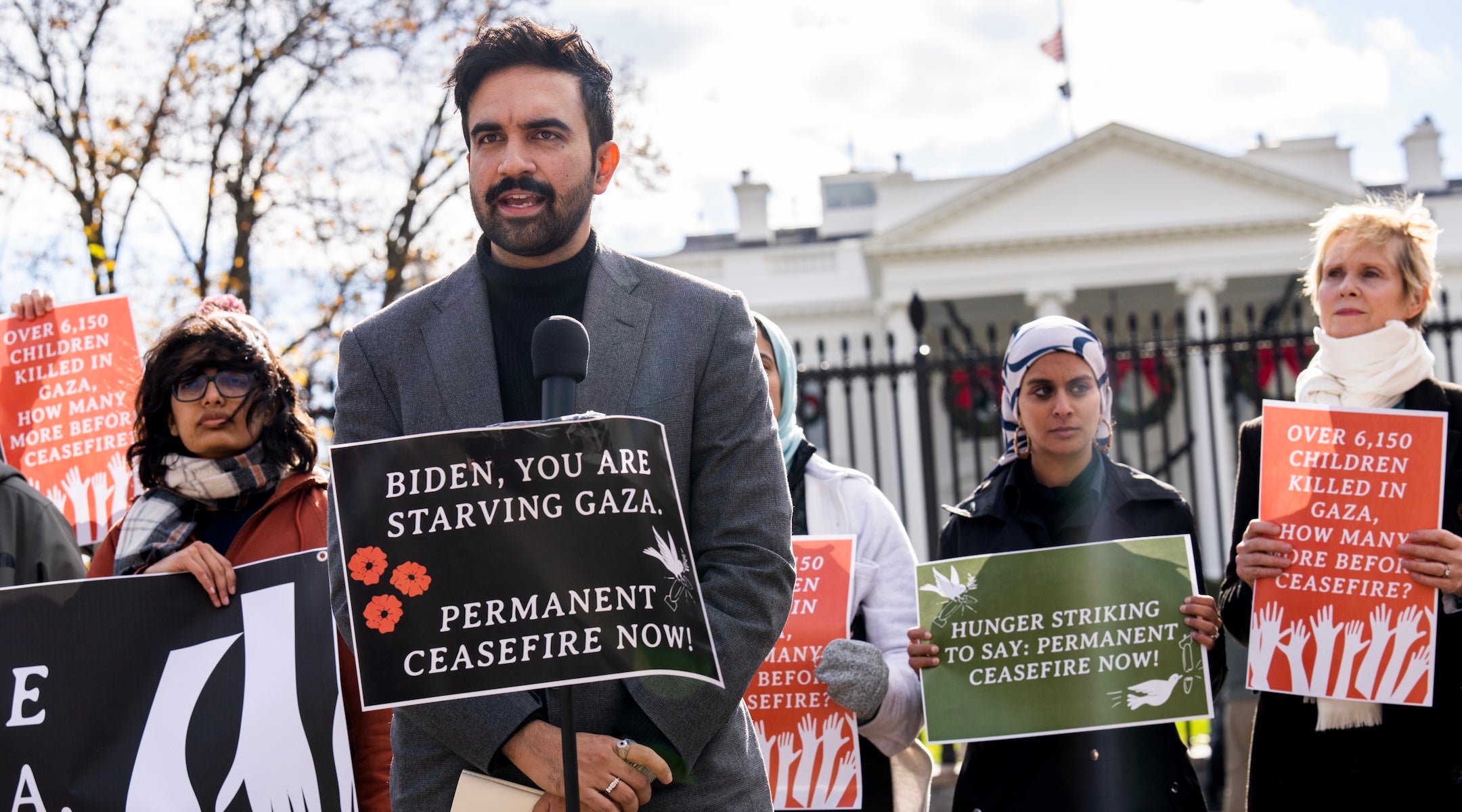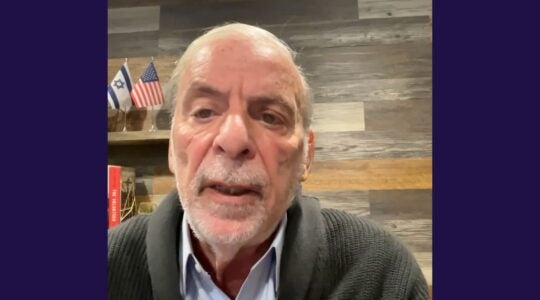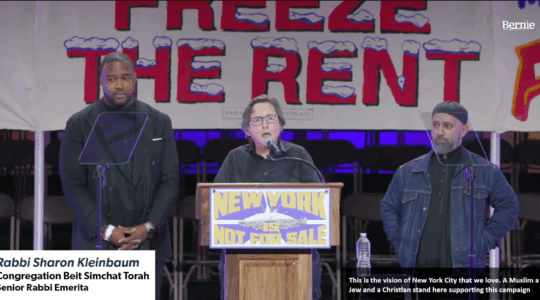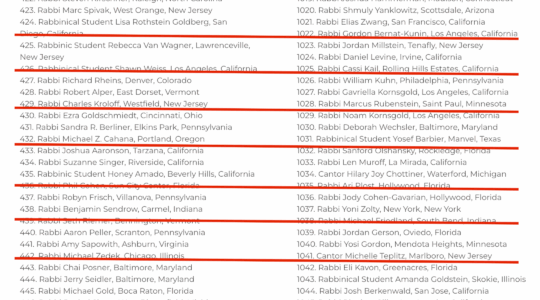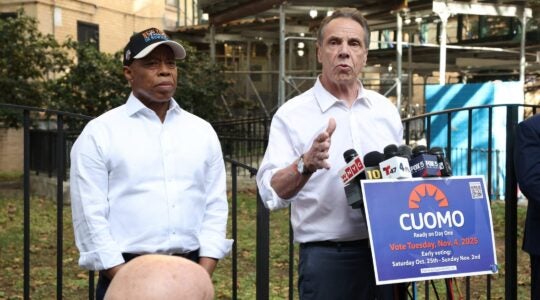Zohran Mamdani said he would seek the arrest of Israeli Prime Minister Benjamin Netanyahu if Mamdani is elected and Netanyahu comes to New York City.
“This is something that I intend to fulfill,” Mamdani, the Democratic candidate and frontrunner, told The New York Times in an interview released Friday.
Mamdani, a staunch and longtime critic of Israel and its government, had indicated during the primary that he would aim to carry out an arrest warrant issued by the International Criminal Court last year against Netanyahu over alleged war crimes and crimes against humanity in Gaza, where Israel has been fighting Hamas since October 2023.
Mamdani has moderated on some of his most progressive positions as he has appeared increasingly likely to win the keys to City Hall in November, but he told the newspaper that his stance on arresting Netanyahu was unchanged.
For the first time, he explicitly said he would order the NYPD to make the arrest, the Times reported. He also said he would ask the NYPD to carry out other ICC warrants as well, such as the 2023 warrant against Russian President Vladimir Putin.
“It is my desire to ensure that this be a city that stands up for international law,” said Mamdani, who as mayor would set NYPD policy priorities but not have the legal power to order arrests.
Netanyahu has brushed off the threat as well as the charges, and the United States is not party to the treaty that created the ICC, meaning that there is no obligation to carry out its warrants on U.S. soil. Any attempt by Mamdani to have Netanyahu arrested, in addition to falling outside the mayor’s legal purview, would result in a clash with the Trump administration, which has hosted the Israeli prime minister multiple times at the White House since the ICC warrant against him was issued.
“This statement is more a political stunt than a serious law-enforcement policy,” Matthew Waxman, a scholar of international law at Columbia University, told the newspaper.
But if it is a stunt, it is one that may appeal to many New York City voters, particularly within Mamdani’s base on the left at a time when the candidate is softening or even recanting past progressive stances. A New York Times/Siena poll released earlier in the week found that voters favored Mamdani’s approach to the Israeli-Palestinian conflict over other candidates’ by a wide margin.
According to the poll, 43% of likely voters said Mamdani was the candidate who “best addressed” the conflict, while only 16% said the same of former Gov. Andrew Cuomo and 11% favored Mayor Eric Adams, each of whom has fashioned himself a defender of Israel. Cuomo volunteered to join Netanyahu’s legal defense team in the wake of the ICC warrant.
Mamdani’s advocacy for Palestinians and criticism of Israel have burned at the center of the race, becoming a flashpoint for Cuomo and Adams, longtime Democrats running as independents. Both gambled on Mamdani’s Israel stance being a political weakness, as it traditionally has been among New York Democrats. They called Mamdani an antisemite and “terrorist sympathizer” and made fighting antisemitism a central issue in their campaigns.
Yet that link did not broadly resonate with New Yorkers, according to the Times/Siena poll. The majority of polled voters, 57%, did not believe that criticism of Israel in the United States today is mostly antisemitic. Another 33% said it was mostly antisemitic and 11% said they didn’t know. Likely voters in New York also sympathized more with Palestinians (46%) than with Israel (29%) — a change in keeping with shifting public opinion but a stark dynamic for a city that is home to largest Jewish population outside Israel.
Jews made up 15% of respondents to the poll, which included 1,284 likely voters between Sept. 2-6 and had an error margin of 3.6%.
Like other polls in recent months, the Times/Siena poll found that Mamdani drew a plurality of Jewish voters (34%) but not a majority, according to Siena Research Institute director Don Levy. The majority of Jews splintered among Cuomo (26%), Adams (25%) and Republican Curtis Sliwa (13%).
Previous polls have shown that Jews are deeply divided on Mamdani. In a July Zenith Research poll, 67% of Jewish voters between 18 and 44 said they planned to vote for Mamdani. A New York Solidarity Network poll, meanwhile, found that 58% of Jews overall said they believed they would be less safe under his leadership, including a large contingent of older voters.
Polling in July found that Mamdani’s advocacy for Palestinians is not a sideshow for many of his supporters. The Middle East Understanding Policy Project’s survey said that while his promises to lower costs and tax the wealthy were most inspiring to his primary voters, his pro-Palestinian stance also drove 62% of them to the polls.
JTA has documented Jewish history in real-time for over a century. Keep our journalism strong by joining us in supporting independent, award-winning reporting.
